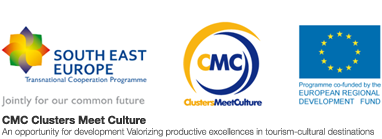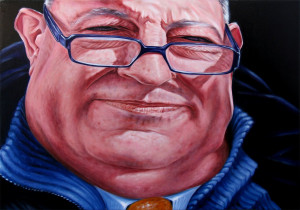An interview with Attilio Zamperoni for CMC web site.
Attilio Zamperoni is the Director of Asolo Film Festival Organisation. The AsoloArtFilmFestival is a non-profit organization that aims to undertake actions aimed at culture in general and in particular of film culture, developing relationships with local and international organizations to support initiatives for the dissemination of thought concerning the cultural art cinema in all its forms of expression. In this way A.I.A.F. wants to create a network that brings together the protagonists of culture to local and international level. Mr. Zamperoni has been interviewed on the Clusters role in Europe and the possible benefit of the synergy between clusters and culture promoted by the CMC Project:
According to your opinion, a cluster needs to be formally recognized?
Yes, certainly. I think that to have an officiallyrecognised cluster, it’d important to converge to a project, as clustering means sharing, planning, having goals.
Which are the main obstacles hindering clustering? What are the main success achieved?
Often, actually too often, clustering’s meant as a loss of individuality, of one’s own ego. Gaining success, means achieving goals, and work to give life to a shared projects. This means to have success and to be successful, which constitutes a fundamental recognition for a team.
How strong is creative and cultural industry in your region? How would you define it?
There’s something incredible about creativity in our region, it’s a forge of planning feasibility, an open-pit fantasy workshop. Creative strength’s supported by willingness to act, to be and to belong, I’d define the Veneto region as a cradle of creative excellence.
How strong is tourism in your region and what development potentials can you see?
Tourism in the Veneto Region’s of paramount importance, millions of annual visits, one of the most significant turnover of the Venetian entrepreneurship, or maybe even the first according to the direct and indirect turnover. Public administration should plan and incentive tourism more, particularly by accompanying it to culture. Veneto’s a region characterised by countless success stories as well as the unconstrained cultural offer, the sea, the hills, the mountains.
In your opinion, are enterprises from the productive sector (industry) linked with the culture? Are donations to cultural activities from the private sector strongly developed (mecenate)?
Some companies do have an actual relationship with culture, but there’s always too few of them, economic potential that culture has per se is immensely much greater in terms of economic, political and business development. Always bear in mind that culture’s a fundamental element in the development of international social and economical relationships, culture’s our true ambassador in the world for both people and companies, as well as the related economic development. About personal donations, yes, sometimes we do have some personal donations, but they don’t go beyond the due automatism and laws en-force about tax exemption. In fact donations aren’t significantly incentivised, people aren’t interested nor are stimulated.
Do you think Private public partnership could be a good tool to promote an integrated tourism promotion of the territory?
Certainly, nowadays the public and the private sectors are two inseparable elements. The future of the tourism company lays on the public/ private formula, policy makers should privatise tourism management, the region should only be a controlling element of management and promotion.
What do you expect from the CMC project?
From CMC, we expect a concrete contribution aimed at the running of projects, positivity, sharpness and feasibility.

